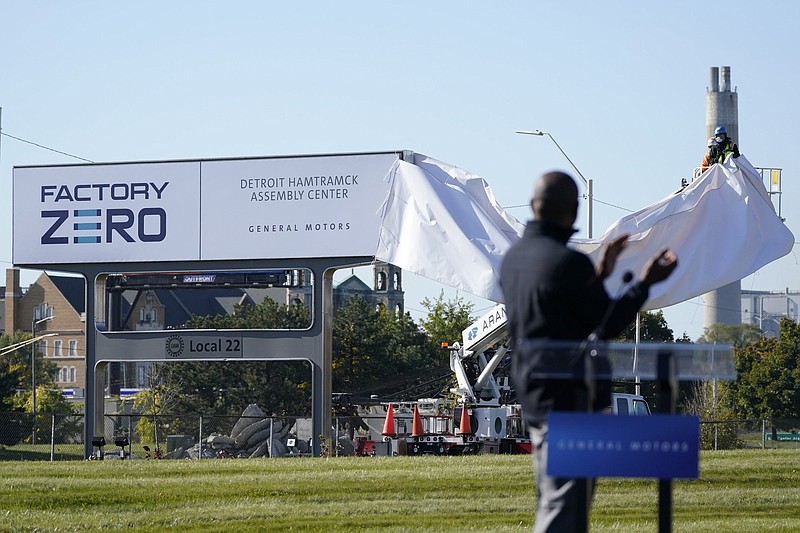General Motors said this week that it will soon restart four North American plants that had been idled for much of the past four months because of the global shortage of computer chips.
The announcement comes after the company and other automakers have spent much of the past few months announcing they were idling factories and slowing production because they could not get enough of the tiny parts, which are essential to not just cars but also electronics, appliances and many other goods.
The automaker said it planned to restart production of the Chevrolet Camaro on June 21, sooner than expected, at its Lansing Grand River, Michigan, factory. The plant has been idle since Feb. 5. Production of the Cadillac CT4 and CT5 sedans will restart a week later.
A Canadian plant that makes the Chevrolet Equinox sport utility vehicle will resume operations June 14 and run through July 2, when it will begin a normal two-week summer shutdown. The plant, known as CAMI Assembly, has been closed since Feb. 8.
Two SUV plants in Mexico will restart Monday. These include a factory in San Luis Potosi that makes the Equinox and GMC Terrain, and another in Ramos Arizpe that makes the Equinox and the Chevy Blazer.
Full production is also scheduled to resume by the end of May at two GM plants in South Korea. The Bupyeong 1 plant has been operating at 50% capacity since late April, while the Changwon assembly plant will also add a second shift.
GM has said the semiconductor shortage will lower pretax profit this year by $1.5 to $2 billion. It earned $3 billion in net income in the first quarter but expects to make only $500 million in the second.
The company appears to be weathering the shortage with fewer problems than Ford Motor Company, which has said the lack of chips could reduce its production to just half as many vehicles in the second quarter as it had previously planned.
The shortage of semiconductors is teaching the industry a painful new lesson in what it takes to build a car.
For most of its history, the industry has relied on a distinct approach to buying car parts, procuring components from suppliers right at the moment they're needed. It's referred to as just-in-time manufacturing and is designed to streamline production and eliminate the costs of keeping warehouses stocked with parts waiting to be used.
But the shortcomings of that system were made starkly clear this year as the automakers confronted a dearth of the chips they need to build advanced functions into their vehicles and found themselves near the bottom of chipmakers' customer lists because of their just-in-time approach.
That shortage is threatening to cut $110 billion in sales from the industry, and forcing auto manufacturers to overhaul the way they get the electronic components that have become critical to contemporary car design.
"Customers need to change," said Hassane El-Khoury, CEO of ON Semiconductor Corp., which gets more than a third of its revenue from the automotive market. "That just-in-time mindset doesn't work."
Semiconductor makers are demanding guaranteed, long-term orders rather than the short-term flexibility the carmakers are used to. The chipmakers' assertiveness, even under pressure from lawmakers, underscores the rebalancing of power from the companies whose logos are on the cars to those that provide the advanced technology that runs them.
As these components play a bigger role in everything from in-car entertainment to self-driving functions, chip manufacturers say they're willing to invest in expanding production to head off a repeat of recent shortages -- if the carmakers give them orders that can't be canceled and commit to long-term agreements.
"Why would I have invested a single dollar when my customer can cancel within 30 days and it takes me two years to build capacity?" El-Khoury said.
There are signs the industry is listening. Last week, Ford CEO Jim Farley indicated a new willingness to reverse decades of outsourcing for parts.
"As the industry changes, we have to in-source now, just like we in-sourced powertrains in the '20s and '30s," said Farley, who has shut down half his factories and seen his dealers' lots emptying because of a dearth of chips.
Information for this article was contributed by Neal E. Boudette of The New York Times and by Ian King and Keith Naughton of Bloomberg News (WPNS).
